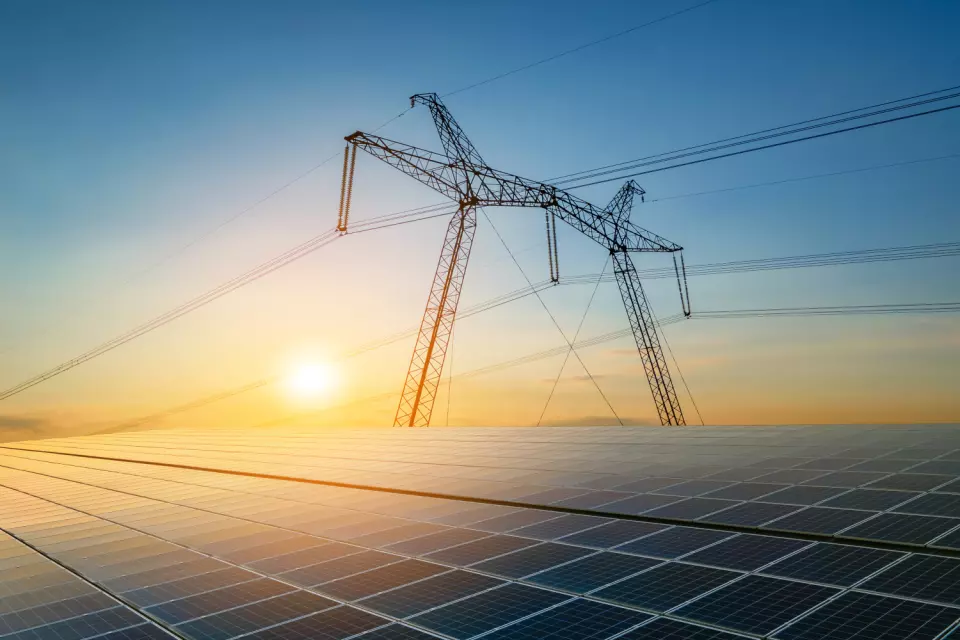Unlike listed gentailers or rooftop panels, this fund targets the middle ground: agile 5MW solar farms with long-term purchase agreements.
New Zealand’s electricity demand is forecast to increase by up to 82% by 2050, as our economy grows and we switch to electrified homes, vehicles and businesses. Meeting that demand will be a significant challenge – Transpower has already warned that we could be facing winter outages next year unless new energy projects join the grid sooner.
We need more renewable energy generation. We need it soon. For investors who are interested in the new energy economy, this presents an opportunity to get involved.
MyFarm has decades of experience syndicating real asset investments – from forestry to farming – and is now bringing that expertise to the renewables sector.
“Whenever there’s a shortage of supply, that’s a good market to be in,” says CEO Andrew Watters. “How do investors get access to renewables? They can buy shares in listed gentailers, like Genesis or Meridian, and there’s some private capital with Lodestone Energy. But there are no real direct investment opportunities for people wanting exposure to this sector, which is why we’re launching our solar fund.”
Solar’s contribution to the grid set to 10X
New Zealand is a country of enormous renewable potential thanks to its rich resources of hydro, geothermal, wind and sunlight. We’ll need to capitalise on all these renewables to meet rapidly growing demand, but some types of projects are comparatively easier to bring online.
Utility-scale solar is one of the world’s cheapest electricity sources, thanks in part to the dramatic 90% fall in the price of photovoltaic panels over the past decade. Only onshore wind is comparable in terms of lifetime (levelised) cost of energy. The total cost of solar farms increases as storage options like batteries or green hydrogen are added, but as the price of these technologies continues to fall, solar farms will be able to supply the grid and the energy sector even when the sun isn’t shining.
Solar is projected to generate up to 11% of New Zealand’s total electricity by 2050, a substantial increase from its current 1% contribution. That means between $20 billion and $30 billion must be invested in solar generation over the next decade, according to calculations by PWC. MyFarm’s new fund will be doing its part to raise some of that capital, giving wholesale investors a chance to own a slice of the country’s energy transition.
5MW solar farms can be up and running within a year
MyFarm is already underway with its plan to add solar to its $600 million primary sector portfolio. The fund’s first farm is planned for Northland, and the second is lined up for a site near Blenheim. The aim is to construct a series of solar farms throughout Aotearoa which will sell energy to Taranaki-based green energy company Hiringa.
“The big players are doing 100 ha solar farms,” Watters adds, “and individual businesses and households are doing panels on their roofs. Then there’s the middle part of the market where we operate: our 5MW projects are agile, while still delivering capital costs that compete with large-scale installations. They don’t require the area of a traditional farm, take less concrete and steel, and use less materials in general. We can go from identifying a suitable area for a solar farm to having it produce energy within a year.”
Consenting often causes delays for large projects, but Watters says that with 35 years of farming experience, the business and its partners know how to navigate resource consents, meet regulatory requirements, and work effectively with landowners.
“It’s called a solar farm for a reason,” he points out. “We have around $90 million in forestry and mānuka forestry, which has been very good for us. We’re heavily researched on carbon markets and the supply and demand of NZU [emissions unit] obligations. It’s quite adjacent so renewables is a natural step for us.”
Double-digit returns forecast for wholesale investors
The solar fund launches in June and requires wholesale investors who can put in a minimum of $50,000. The fund is projecting returns of between 10% and 12% per annum, with depreciation providing an additional tax advantage compared to other asset classes. The Government’s recent Budget 2025 announcement of the Investment Boost policy – which allows businesses to deduct an additional 20% of the cost of new capital assets – is expected to provide additional tax advantages for investors.
And because MyFarm has been providing agrisector syndication to investors for decades, it has an established secondary market to provide a degree of liquidity.
Overall, the solar fund is designed to be a small part of a much larger portfolio, providing a diversification opportunity for wholesale investors.
“Each solar farm will have a 30-year life, with good strong early cashflow,” he says. “These will be good quality farms built at a reasonable cost. To mitigate risk, we have 10-year purchasing agreements. We like and rate Hiringa as a long-term partner, but of course, we can also sell the electricity to other users if we need to.”
“There are plenty of reasons to be optimistic”
Aotearoa has some catching up to do if we’re going to manage a smooth transition into a renewable energy economy, but the subsequent benefits of greater energy security and certainty of supply will be enormous.
“There will be issues to manage along the way, but as Transpower said on RNZ recently, we just need more projects to start operating – so let’s get on with it,” Watters says. “There are various technologies racing toward success, and as they scale up they get more economical. You can see solar and wind, batteries and green hydrogen, all playing their part in our future economy. We’re living in a transitional period of history, and I think there are plenty of reasons to be optimistic.”
To learn more or register your interest in the MyFarm Solar Fund, visit myfarm.co.nz/solar.
* MyFarm investment opportunities are only available to wholesale investors. To find out more about FMCA requirements and whether you are eligible, visit myfarm.co.nz/fmca.






